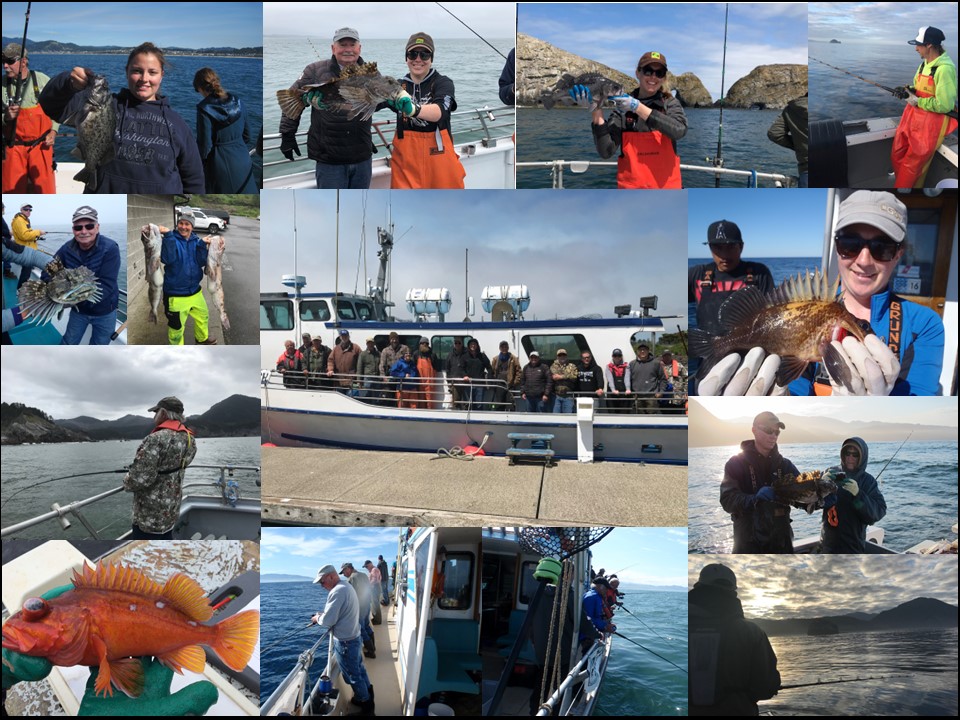Photo: Recreational anglers show off their catch
We are pleased to announce that our human dimensions program published a new study about Oregon recreational fishers’ knowledge, support and perceived impacts of marine reserves. This large-scale online survey targeted recreational anglers (n = 7,638) across the state of Oregon to learn what impacts the marine reserve system had on the recreational fishing community.
Overall this study found that impacts of marine reserve implementation on the Oregon recreational fishing community have been minimal in aggregate. Opposition to Oregon’s marine reserves was quite low (9.9%), but was higher among avid saltwater fishers, those who consider angling central to their lifestyle, and respondents whose fishing behavior had been impacted by marine reserve establishment. Among those few who were displaced, most found substitute saltwater fishing grounds.
We also learned that most anglers (57.6%) were aware of the marine reserve system; however, knowledge about specific reserve names or locations was low. In general knowledge was higher among respondents who were members of a sport-fishing organization and respondents who fished off the central Oregon coast, where three of Oregon’s five marine reserves are located.
The lack of marine reserve opposition suggests that fishers would likely comply with regulations, though the lack of knowledge suggests a need for increased communication efforts to ensure compliance is attainable.
To learn more about the Human Dimensions Research that the marine reserves program has been conducting over the last 10+ years on our website here: https://oregonmarinereserves.com/science/human-dimensions/
